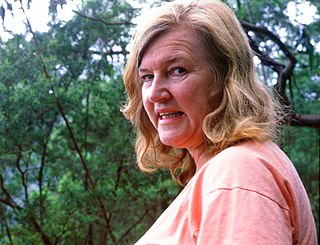Top 1161 Ethical Dilemmas Quotes & Sayings - Page 20
Explore popular Ethical Dilemmas quotes.
Last updated on December 19, 2024.
Old Testament Israel had some foundational pillars of faith. They were true and robust and God given. The trouble was that people had come to trust in them merely by repeating them, without paying any attention to the ethical implications of what their faith should mean in how they lived. They believed God had given them their land. He had. But they had not lived in it in either gratitude or obedience. They had not fulfilled any of the conditions that Deuteronomy had made so clear.
We all faced painful ethical challenges before we even knew how to spell our names. There were tough choices. Tradeoffs. Confusing signals regarding how to live one's life. And here we are now, today, still struggling. Still trying to sort things out. Still trying to work our way through life effectively. About the only thing that has changed is the scope of the problem. There's more at stake now. And we're in a position, as grownups, to do a lot more-good or bad-for ourselves, our organization, our world. But we still must wrestle with our imperfect ethics.
True myths may serve for thousands of years as an inexhaustible source of intellectual speculation, religious joy, ethical inquiry, and artistic renewal. The real mystery is not destroyed by reason. The fake one is. You look at it and it vanishes. You look at the Blonde Hero-really look-and he turns into a gerbil. But you look at Apollo, and he looks back at you. The poet Rilke looked at a statue of Apollo about fifty years ago, and Apollo spoke to him. "You must change your life," he said. When the true myth rises into consciousness, that is always its message. You must change your life.
The ethical rule is from Samuel Johnson who believed that maintenance of easily removable ignorance by a responsible office holder was treacherous malfeasance in meeting moral obligation. The prudential rule is that underlying the old Warner & Swasey advertisement for machine tools: "The man who needs a new machine tool, and hasn't bought it, is already paying for it". The Warner & Swasey rule also applies, I believe, to thinking tools. If you don't have the right thinking tools, you, and the people you seek to help, are already suffering from your easily removable ignorance.
I think it's really easy for people to point out hypocrisy in people's lives. It's like yeah, I get on planes a lot, and I drank from a plastic water bottle today - you know what I'm saying? A lot of people would just be like, "Oh, you're a hypocrite. You live in an ecovillage for a month, and then you fly around the world to talk about a movie." Don't think that I don't think about those things! Don't think that that's not, like, a quandary in my life. It can be a pretty intense ethical dilemma. I think it's about figuring out, you know, navigating life.
People knew there were two ways of coming at truth. One was science, or what the Greeks called Logos, reason, logic. And that was essential that the discourse of science or logic related directed to the external world. The other was mythos, what the Greeks called myth, which didn't mean a fantasy story, but it was a narrative associated with ritual and ethical practice but it helped us to address problems for which there were no easy answers, like mortality, cruelty, the sorrow that overtakes us all that's part of the human condition. And these two were not in opposition, we needed both.
Ours is a world of nuclear giants and ethical infants. We know more about war than we know about peace, more about killing than we know about living. The way to win an atomic war is to make certain it never starts. And the way to make sure it never starts is to abolish the dangerous costly nuclear stockpiles which imprison mankind.
The delight of the Torah is ignited by an inner awareness. A man begins to sense the great tapestry of each letter and point. Every concept and content, every notion and idea, of every spiritual movement, of every vibration, intellectual and emotional, from the immediate and general to the distant and detailed, from matters lofty, spiritual, and ethical according to their outward profile, to matters practical, obligatory, seemingly frightening, and forceful, and at the same time complex and full of content and great mental exertion - all together become known by a supernal holy awareness.
We need to build millions of little moments of caring on an individual level. Indeed, as talk of a politics of meaning becomes more widespread, many people will feel it easier to publicly acknowledge their own spiritual and ethical aspirations and will allow themselves to give more space to their highest vision in their personal interactions with others. A politics of meaning is as much about these millions of small acts as it is about any larger change. The two necessarily go hand in hand.
To be a good human being is to have a kind of openness to the world, an ability to trust uncertain things beyond your own control, that can lead you to be shattered in very extreme circumstances for which you were not to blame. That says something very important about the condition of the ethical life: that it is based on a trust in the uncertain and on a willingness to be exposed; it’s based on being more like a plant than like a jewel, something rather fragile, but whose very particular beauty is inseparable from that fragility.
No man may initiate the use of physical force against others. No man-or group or society or government-has the right to assume the role of a criminal and initiate the use of physical compulsion against any man. Men have the right to use physical force only in retaliation and only against those who initiate its use. The ethical principle involved is simple and clear-cut: it is the difference between murder and self-defense.
Innovation, sending civilians to outer space, mapping the mind, curing cancer - all these things, they're great. Obviously these same companies are also making a lot of money and accumulating a lot of our data at the same time, which seemed like independent things and one is beneficial and one is problematic for us as individuals, but in the rush of the new I think a lot of the philosophical, ethical, moral, and legal questions don't get asked in time. It's not in our nature to pause, sit, meditate, question, debate. We move forward. Technology generally answers itself with more technology.
Broader and deeper we must write our annals, from an ethical reformation, from an influx of the ever new, ever sanative conscience, if we would trulier express our central and wide-related nature, instead of this old chronology of selfishness and pride to which we have too long lent our eyes. Already that day exists for us, shines in on us at unawares, but the path of science and of letters is not the way into nature. The idiot, the Indian, the child, and unschooled farmer's boy, stand nearer to the light by which nature is to be read, than the dissector or the antiquary.
I've actually spent about half of my life overseas in the third world. I grew up in Tanzania, East Africa, and later lived in South-West Asia. In general, everywhere I go, I am treated with great respect and hospitality, but I need to be sensitive to cultural, tribal and ethical customs of the local people. In this modern era of technology, I think we forget that the most important thing when traveling is to listen and learn, and establish relationship, and not be hidden behind technology like Goretex, emails, satellite phones, and insulated from the people around you.
It's silly to have as one's sole object in life just making money, accumulating wealth. I work because I enjoy what I'm doing, and the fact that I make money at it - big money - is a fine-and-dandy side fact. Money gives me just one big thing that's really important, and that's the freedom of not having to worry about money. I'm concerned about values - moral, ethical, human values - my own, other people's, the country's, the world's values. Having money now gives me the freedom to worry about the things that really matter.
To the extent that we hyper-separate ourselves from nature and reduce it conceptually in order to justify domination, we not only lose the ability to empathise and to see the non-human sphere in ethical terms, but also get a false sense of our own character and location that includes an illusory sense of autonomy. The failure to see the non-human domain in the richer terms appropriate to ethics licences supposedly ‘purely instrumental’ relationships that distort our perceptions and enframings, impoverish our relations and make us insensitive to dependencies and interconnections
In the past 20 years alone, it adds up to more death than were caused by all the civil and international wars adn government repression of the entire twentieth century, the century of Hitler and Stalin. How much would we give to prevent those horrors? Yet how little are we doing to prevent today's even larger toll and all the misery that it involves? I believe that if you read this book to the end, and look honestly and carefully at our situation, assessing both the facts and the ethical arguments, you will agree that we must act.
Thought cannot avoid the ethical or reverence and love for all life. It will abandon the old confined systems of ethics and be forced to recognize the ethics that knows no bounds. But on the other hand, those who believe in love for all creation must realize clearly the difficulties involved in the problem of a boundless ethic and must be resolved not to veil from humankind the conflicts which this ethic will involve us, but allow us really to experience them. To think out in every implication the ethic of love for all creation this is the difficult task which confronts our age.
No degree of prosperity could justify
the accumulation of large amounts of highly toxic substances which nobody knows how to
make safe and which remain an incalculable danger to the whole of creation for historical or
even geological ages. To do such a thing is a transgression against life itself,
a transgression infinitely more serious than any crime perpetrated by man.
The idea that a civilization could sustain itself on such a transgression is an ethical, spiritual, and metaphysical monstrosity. It means conducting the economical affairs of man
as if people did not matter at all.
[W]omen's magazines know that more than two thirds of women pray each day so they tend to promote "spirituality" which is warm, soft, fuzzy, and "me-centered, " rather than religion, which is definitely not. Shot with a soft-focus lens, spirituality in women's media has morphed into another method of stress reduction. Lulling and inoffensive, spirituality is more about taking long walks and buying $65 Jo Malone scented candles than making ethical decisions or moral judgments. It's another way to calm ourselves, refresh ourselves, or applaud ourselves.




















